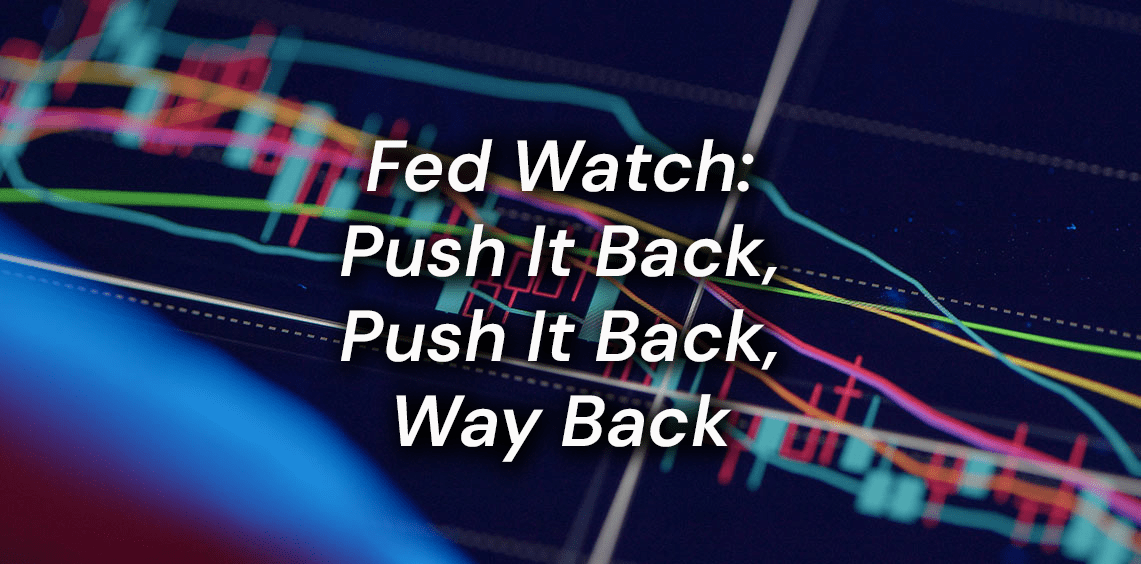We received the ¼ point Fed rate hike I predicted, but I thought Powell reluctantly pivoted to 25 basis points and preferred 50. His tone in the press conference was hawkish.
Let’s start with the rather disturbing Dot Plot and Fed projections for the economy and inflation. The Fed lowered its 2023 GDP projections down to 0.4%. Most economists project Q1 GDP to annualize between 2 and 3%. But if 2023 full year GDP growth will be 0.4%, the economy must average negative growth over the next three quarters.
These Fed forecasts are therefore predicting a recession. Unless there is another complete collapse of productivity, the Fed is also predicting negative job growth for the next nine months and a rise in the unemployment rate to 4.6%.
I was further disturbed that Powell said the Fed did not, under this dire scenario, even discuss whether any rate cuts would occur by end of the year. The bond and Fed funds futures markets are saying the Fed will have to cut at least two to three times this year given the Fed’s prediction. This denial of the possibility of cuts in the face of predicting a recession harkens back to previous Powell comments in 2021 when inflation was rapidly accelerating, and Powell said the Fed was not even “thinking about thinking about” raising rates!
Furthermore, Powell admitted a tightening of financial conditions from bank stress is equivalent to a Fed rate hike. So the Fed went 25bps when it could have gone 50. But most economists believe the current situation is significantly more serious, and one suggested upcoming bank lending contraction is equivalent to 50 to 150bps of hikes. The Fed is being too sanguine about the current lending contraction and needs to be more forward looking and cautious here.
Stylistically, I also detected in Powell’s body language more uncertainty and less assuredness. I think Powell was shaken and blindsided by the bank failures. 80% of reporters’ questions during the press conference were about the health of the banking system. Powell kept reiterating that the Vice Chair Michael Barr will look into the collapse of SVB, refusing to comment further. He should have been more prepared to address this head on.
And I will reiterate: it has been reported that the bank stress tests only ‘stressed’ banks up to a 2% Fed funds rate, when the Fed’s projections showed increases two to three times higher. That is another Fed failure. Even ignoring the regulatory mishaps that are taking place from the Federal Reserve Bank of San Francisco, the failure to test bank balance sheets above a 2% Fed funds rate is perhaps as big of a mistake as not hiking rates in 2021 despite the explosion in the money supply.
The economic data last week was mixed: initial jobless claims came out on the strong side, below 200,000, but we got a very weak durable goods report. The risk of recession has increased clearly.
Maybe the markets will knock sense into the Fed. And I do think the Fed will be lowering rates by the end of the year and perhaps easing very rapidly.
In the meantime, I am more cautious about equities. Equities will likely struggle with recession risk rising and an overly tight Federal Reserve. Cyclical and value equities often face more pressures in that environment. If the Fed gets it, we can avoid the worst-case scenarios. But conservative positioning makes sense at the moment.
Past performance is not indicative of future results. You cannot invest in an index.
Professor Jeremy Siegel is a Senior Investment Strategy Advisor to WisdomTree Investments, Inc. and WisdomTree Asset Management, Inc. This material contains the current research and opinions of Professor Siegel, which are subject to change, and should not be considered or interpreted as a recommendation to participate in any particular trading strategy, or deemed to be an offer or sale of any investment product and it should not be relied on as such. The user of this information assumes the entire risk of any use made of the information provided herein. Unless expressly stated otherwise the opinions, interpretations or findings expressed herein do not necessarily represent the views of WisdomTree or any of its affiliates.






